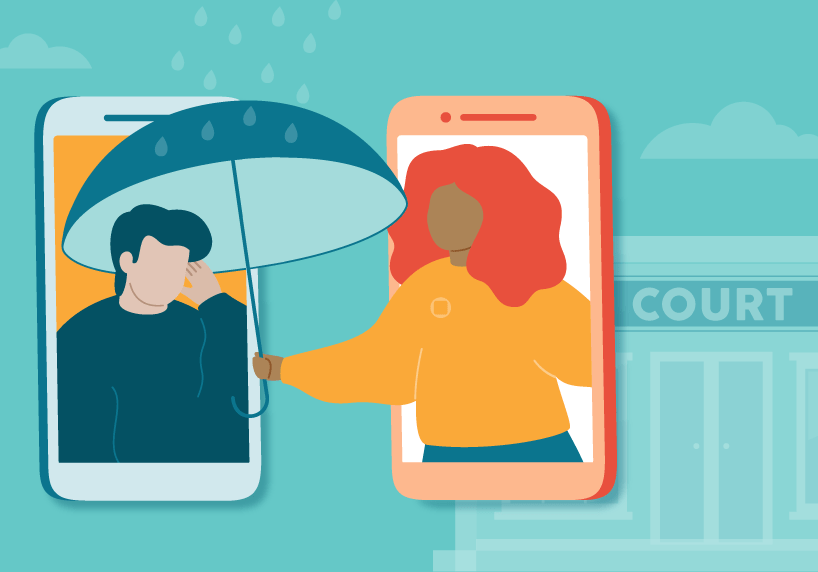Our Help Before Court service is:
- for people with criminal charges
- free and confidential(opens in a new window).
How we help depends on your criminal charges, your court date and your personal circumstances such as income.
When you ask for Help Before Court, someone from our Intake Team (who is not a lawyer) will call you and say how we can help you prepare for court.
Ask for help now
How Help Before Court works
Step 1: Ask for our help
You can ask for Help Before Court by:
- filling out our online form
- calling our Legal Help phoneline on 1300 792 387
- messaging our online Legal Help Chat
- attending a Legal Aid office.
Step 2: Our Intake Team calls you
This will happen within 4 business days of you asking for our help.
Our Intake Team will call you from a private number. We will send you an SMS before we call.
We will ask you questions about you, your court date and your criminal charges. This is so we can find the right help for you.
You will get information on the phone and/or via email. We can also refer you to other places to get help.
Our Intake Team will refer you to a lawyer if you are eligible for free legal advice.
If our lawyers are not available our Intake Team will refer you to get help at court.
Step 3: We get a copy of your documents
The lawyer needs a copy of your court documents to give you legal advice. Our Intake Team will contact the agency that charged you to get your documents.
The agency may be Victoria Police or Corrections Victoria.
Step 4: You get legal advice from a lawyer
Our Intake Team will let you know which office or lawyer is helping you. Most appointments are by phone and based on the best time to contact you.
The lawyer will let you know if they will join you in court.
Eligibility for legal advice from a lawyer
If your court date is more than 2 weeks away, our Intake Team can refer you to a lawyer for legal advice.
Our lawyers can only provide legal advice to those who need it most. You are eligible for legal advice from a lawyer if you:
- have court in more than 2 weeks
- meet our income test, for example if you are on Centrelink or a low income
- and your criminal charge is one that we can help with
The same eligibility applies to getting legal advice and help at court.
See more information about getting Help Before Court.
Get help if your case is in the Children’s Court
We prioritise children and young people. If your criminal case is in the Children's Court (usually for people between the ages of 10 and 19), you will be referred to a lawyer for legal advice.
Get help in your language

We can arrange a free and confidential interpreter who speaks your language.
Let us know what language you speak, and if you want an interpreter. You can tell us when we call. You do not need to be an Australian citizen to ask for our help.
We have written information about our services in other languages.
Get help if you are deaf or find it hard to hear

You can contact us using the National Relay Service or message our online Legal Help Chat.
If you ask for Help Before Court using our online form, we can arrange an Auslan interpreter for free.
See more about getting support if you are deaf or find it hard to hear or speak on the phone.
Support if you are stressed about court
Lifeline offers 24-hour crisis support for Australians experiencing emotional distress. You can reach out to their trained crisis support officers:
- phone – 13 11 14
- text – 0477 13 11 14
- crisis support chat
Kids Helpline also offers 24-hour support for children and young people between the ages of 5 and 25 years old:
- phone – 1800 55 1800
- email – counsellor@kidshelpline.com.au
Updated


